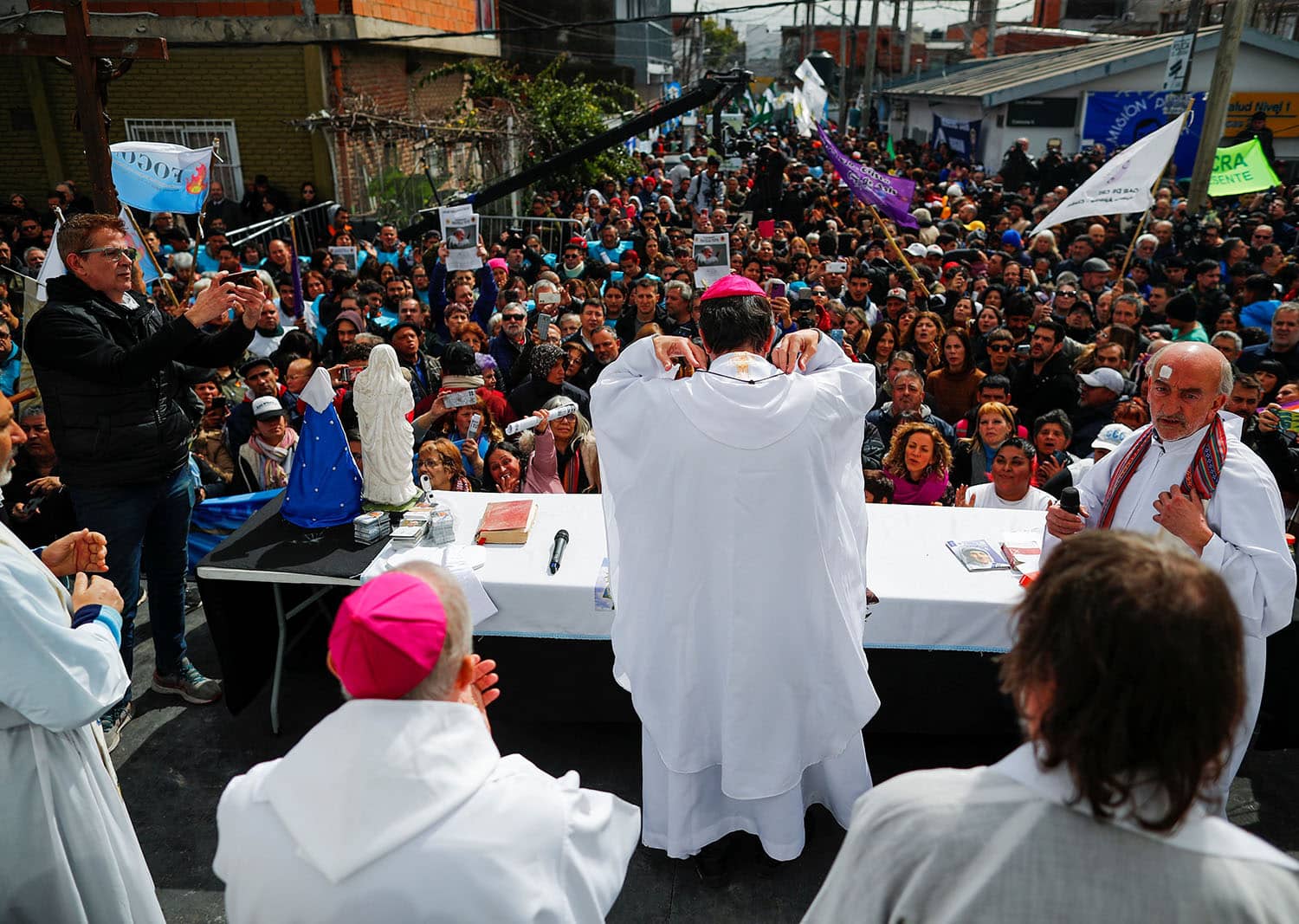(OSV News) — Priests working in the shanty towns surrounding Buenos Aires have denounced cuts to a fund for programs in poor communities, calling it a “step backwards” during an economic crisis.
The warning followed a Feb. 26 decision by the government of Argentina’s libertarian President Javier Milei to redirect funds from a tax financing social-urban projects in shanty towns and poor communities toward other infrastructure projects instead.
“The intervention of the state in more than 5,000 working-class neighborhoods across that country cannot be cut,” the priests, known as “curas villeros,” said in a Feb. 26 statement.
“Lowering the (fund’s) budget would be a backwards step. We cannot tolerate such a setback that generates greater exclusion and, therefore, insecurity and social disintegration.”
Transparency
Government spokesman Manuel Adorni told reporters Feb. 26 that the move was to “make the state transparent when speaking of the funds that should be allocated to society’s most vulnerable,” according to news outlet Télam.
The announcement follows dissatisfaction among Catholics working with the poor over a revised government process for supplying charitable soup kitchens with provisions. The Milei government has said it wants to eliminate intermediaries in providing social services.
Economically painful
The cuts also come as Milei implements austerity measures in Argentina after assuming power in December amid a severe economic crisis. Milei campaigned on slashing what he considered profligate spending and curbing corruption, while promising to spare the poor.
His first two months have proved economically painful — as he predicted — with the annual inflation rate accelerating to 254.4% in February. Poverty reached 57.4% in January, its highest level in 20 years, according to the Social Debt Observatory at the Pontifical Catholic University of Argentina.
Caritas Argentina operates some 1,800 soup kitchens the length of Argentina, according to Auxiliary Bishop Gustavo Carrara of Buenos Aires, who works with the curas villeros.
“Demand is growing,” he told Radio Con Vos Feb. 26. “My hope is that this error is corrected. We still have time because it could cause a catastrophe.”
An estimated 5 million Argentines live in poor neighborhoods and shanties known as Villas Miseria (Misery Villages) — with the latter often founded by squatters and migrants from neighboring Paraguay and Bolivia — according to Bishop Carrera.
The curas villeros, whose work was championed by the then-Cardinal Jorge Mario Bergoglio of Argentina, now Pope Francis, have long advocated for increased state services in the shanties, while politicians have previously wanted them to disappear.





